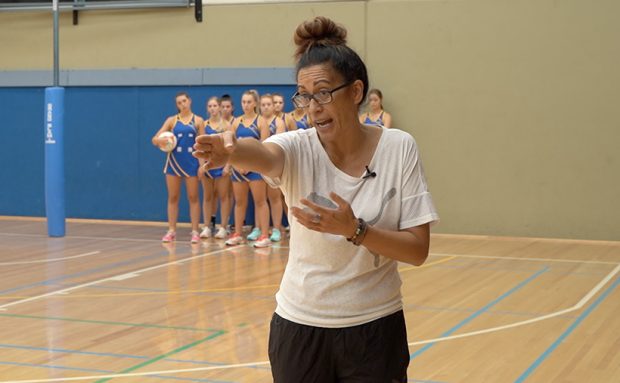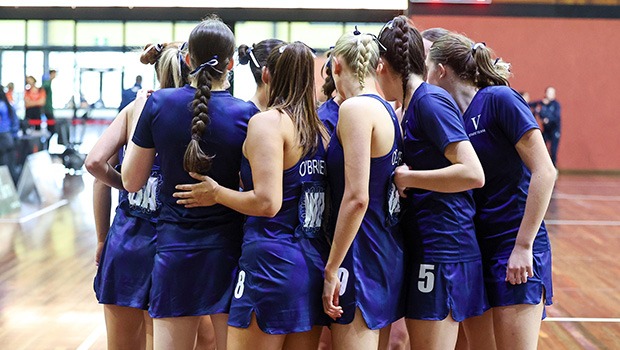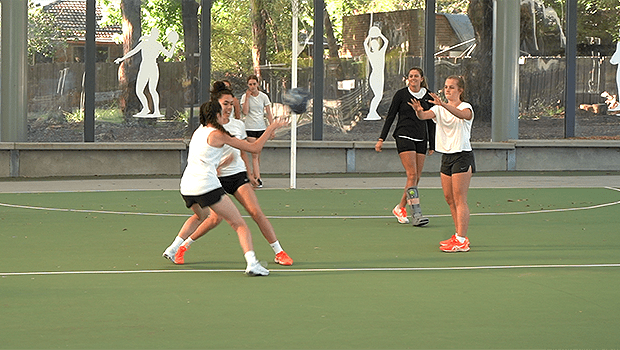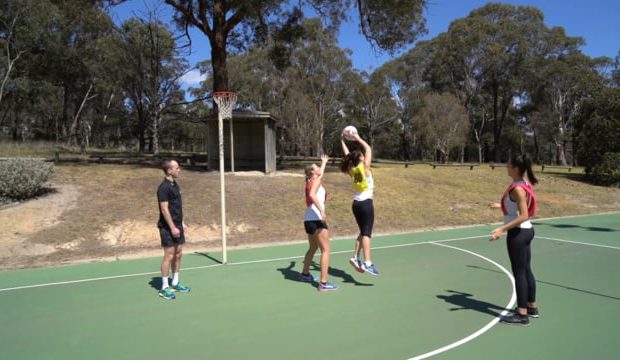– by Heath Brown
Whether you’re a netball coach, player or official, at some stage during your involvement in the sport you’ll most likely find yourself involved in good old netball politics.
Sometimes we’re the netball ‘politicians’ dishing it up, while other times we are the subject or target of those same politics. The spectrum of political drama is wide – from seemingly harmless complaints and moaning, right through to ugly vindictive attacks or behind-the-scenes wheeling and dealing to bring someone down.
JOIN NOW: ACCESS 400+ NETBALL DRILLS AND SKILLS VIDEOS!
No one wins when politics and netball collide. The people involved, the team and the association all get a bad rap. So what can we all do to get rid of this poison surrounding our teams, our associations or clubs? Here are a few hints and tips to help ensure you’re working towards creating the right environment for netball to thrive.
Tips for committees
1. Player/member-centricity
In the corporate arena, big brands are focussed on customer-centricity – or as the name suggests, putting your customer at the centre of everything you do. Adapting this into committees is one surefire way to stamp out politics. In this case, your customers are your PLAYERS, and your investment and planning should always link back to the best interests of your players and members and not the interests, agenda or opinions of the committee. Big decisions should be formed with member input in a democratic way. Are you unknowingly running a committee where it’s all about you and not your members?
2. The committee or the alumni?
All too often we fill netball committees with those who are netball-mad, as well as a rotation of stalwarts. This almost always makes it more of a netball alumni, rather than a true committee. While it is important to keep some members involved for a lifetime, this approach doesn’t always attract the talent needed to run the club professionally and financially. Committees should be formed with a focus on diversity. That means different age groups from young to old, different genders, different cultures, different thinkers!
3. Conflicts of interest
Given many clubs or associations are registered entities and have governance responsibilities, it has always been interesting to me the degree of conflict of interest that exists in our sport. Most netball politics in committees comes from conflicted perspectives: parents protecting daughters with their position of power, friends selecting friends, and even financial decisions for personal or professional gain. If you spot it – call it out and stamp it out.
4. Speak up and stand up
It’s often hard to call the ‘politicians’ within committees out on their bullish behaviour and stand up to them. Political environments are created not just by those who dish it up, but also those that walk past poor behaviour. Don’t turn a blind eye. Don’t agree for the sake of peace. Speak up, and stand up for what’s right.
CLUB SUBSCRIPTIONS: GIVE YOUR COACHES A HEAD START WITH A MULTI-COACH MEMBERSHIP
5. Tall poppy syndrome
No matter what state or competition I’ve coached in, there are always those clubs that gang up on the self-made clubs or associations that are the most successful. State league competitions have them, footy netball leagues have them and domestic competitions have them. Rival clubs spend most of their time politically chipping away at the best teams, rather than focusing on their own mission to get to the top or even learning from the best rather than undermining them. Jealousy is a curse! Look up to these clubs rather than spending all of your energy on gossiping, bitching and moaning about them. Instead, think about what you can do to bridge the gap to compete with them.
Tips for teams/coaches
1. Pick drama-free captains
Leaders are often the fastest front door for politics to infiltrate a team. When the “he said, she said” starts – as it does in any team – good leaders stamp it out. Questionable leaders let it happen, and poor leaders instigate it. If you start seeing politics between players, have a long, hard look at how your captain responds.
2. Upside the darkside
Sadly, gossiping or bitching is often a part of team sports. It’s going to happen when you have a bunch of players together so often. If you hear it happening, sometimes it can pay to allow those players to finish their vent and get it all out. But don’t let that be the end of it. Set a rule that those players have to close the vent out with a positive action so that the cause of the vent is dealt with.
3. Avoid player recruitment politics
I have never watched more young women bring dragged through the gutter during a netball offseason than I have in recent years. It’s not the players who take recruitment discussions to the gutter, it’s the officials calling, stalking, demanding and making conflicted promises that make it a sad state of affairs. If you are hunting for players, show some integrity and treat athletes with respect.
4. Competing with the power holders
In every state in which I’ve coached, there’s usually one club or association that holds the balance of political power in cycles. That club is typically characterised by an over-concentration of state or elite coaches, which I see as political, as it promotes a lack of diversity and creates an unfair advantage. We all see parents migrate to the trials of these clubs, hoping that their daughter’s chances of making a state team will be increased, and some coaches certain play to that belief. My advice is to ride it out. Stick to your guns. There is no longevity in these cycles. Take the non-political, homegrown talent route and know that manufactured teams or clubs will often have to do it the way you do eventually.
5. Break hierarchies
In the book Legacy, the author discusses the New Zealand All Blacks having a “sweep the sheds” policy, meaning that no one cleans up after them – they do it themselves. It is hierarchies and pecking orders that often create politics or negative cultures, so be the player and the team who respects all in the team and the periphery.
Heath Brown is a former Australian men’s team captain, and has coached at the elite level in both Victoria and New South Wales. He is also heavily involved in corporate leadership.






We used to have a saying
Be reasonable, do it my way. For fun.
Yeah pity that adults over look talented players due to club politics…or because they have been called out for poor behaviour.